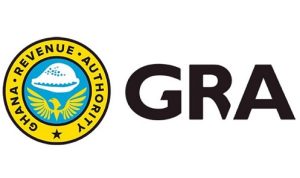
Source: Graphic Online
The Ghana Revenue Authority (GRA) has stated that extra revenue gained from the deployment of assurance systems on petroleum storage depots and the single window system have yielded more income for the country in excess of GH¢3 billion across two years.
The authority said sensors and real-time data reconciliation implemented by Strategic Mobilisation Limited (SML) significantly improved revenue collection, and that those systems, combined with the Integrated Customs Management System (ICUMS), led to increased reported volumes from 350 million litres per month in 2018 and 2019 to 450 million litres per month from 2020/2021, representing an increment of 33 per cent.
The Communication and Public Affairs Department of GRA, which released the statement in Accra yesterday on behalf of the Board and Management of the authority, said the improvement represented an extra 100 million litres per month on the average at a levy rate of GH¢1.44.z
“The extra revenue variance gained for the two years will exceed GH¢3 billion.
This performance is attributable mainly to the introduction of ICUMS and SML systems,” the statement said.
The GRA consequently justified its expanded contract with the company, emphasising that it was not a new venture but a continuation of a proven success in the downstream petroleum sector since 2019.
“The new and consolidated contract which is for a term of five years and not 10 years (as alleged by the publication) was agreed upon based on the performance of SML in monitoring the downstream petroleum sector and the provision of instant reconciliation of real-time data in the sector,” the statement said.
The five-year consolidated contract, officials said, covered downstream and upstream petroleum (2019/2023) and minerals/metals (2023), rather than a supposed 10-year contract.
The GRA and the SML have come under public scrutiny over an alleged $100 million contract said to have allegedly netted SML in excess of $100 million annually.
Performance
Outlining the performance of the system, the GRA said prior to engaging SML, the GRA’s archaic dipstick system, requiring officers to climb tanks, was both inefficient and risky.
It said recognising that, the GRA revamped its approach using SML’s modern technology, prioritising safety and accuracy, and ensuring that oil deliveries at depots were measured using sensor-equipped red flow meters installed by the bulk-oil distribution companies.
Similarly, the statement pointed out, that SML meticulously tracked each oil marketing company’s (OMC’s) fuel uplift through comprehensive measurements, ensuring complete data alignment with ICUMS.
“If there are discrepancies, Customs informs the OMC to enter a post-entry to correct the differences, while SML provides additional data independent of the Customs ICUMS data capable of validating anomalies in quantities imported, discharged and accounted for by way of taxes,” the statement said.
It highlighted that between 2015 and 2020, systemic weaknesses in petroleum tax accounting and collection were revealed by EY Ghana and RACE, prompting closer scrutiny.
It said it recognised the challenge of inconsistent data transmission across the petroleum downstream value chain and implemented extensive reconciliation efforts to connect platforms and institutions in order to recover lost revenue.
The mode of transmission of data from various sources and systems, it said, was fraught with inconsistencies, resulting in loss of revenue.
It added that extensive reconciliation had to be done on the various platforms and institutions within the petroleum downstream value chain to collect revenue that would otherwise have been lost.
Responses
The GRA statement said publications indicated that prior to SML’s involvement, the fuel measurement system was manual and inefficient, prone to human error and revenue leaks.
It said the contract was risk-reward, which implied that SML earned only if revenue increased and there was no payment for no added value.
The statement pointed out that the contract was procured legally in line with the procurement laws of the country, allowing SML to finance all capital expenditures and technology for the downstream petroleum project.
Consolidated contract
The statement further affirmed that based on this success, the Ministry of Finance expanded the contract to cover upstream petroleum and the mining sector, leveraging SML’s expertise and technology to mitigate revenue leakages.
The GRA expressed confidence that the contract, along with other initiatives and technology, would further boost revenue collection and contribute to reaching a national tax-to-GDP ratio exceeding 18 per cent.
“We remain committed to exploring innovative methods to plug leakages and ensure compliance,” the statement affirmed.
Source: www.graphic.com.gh









